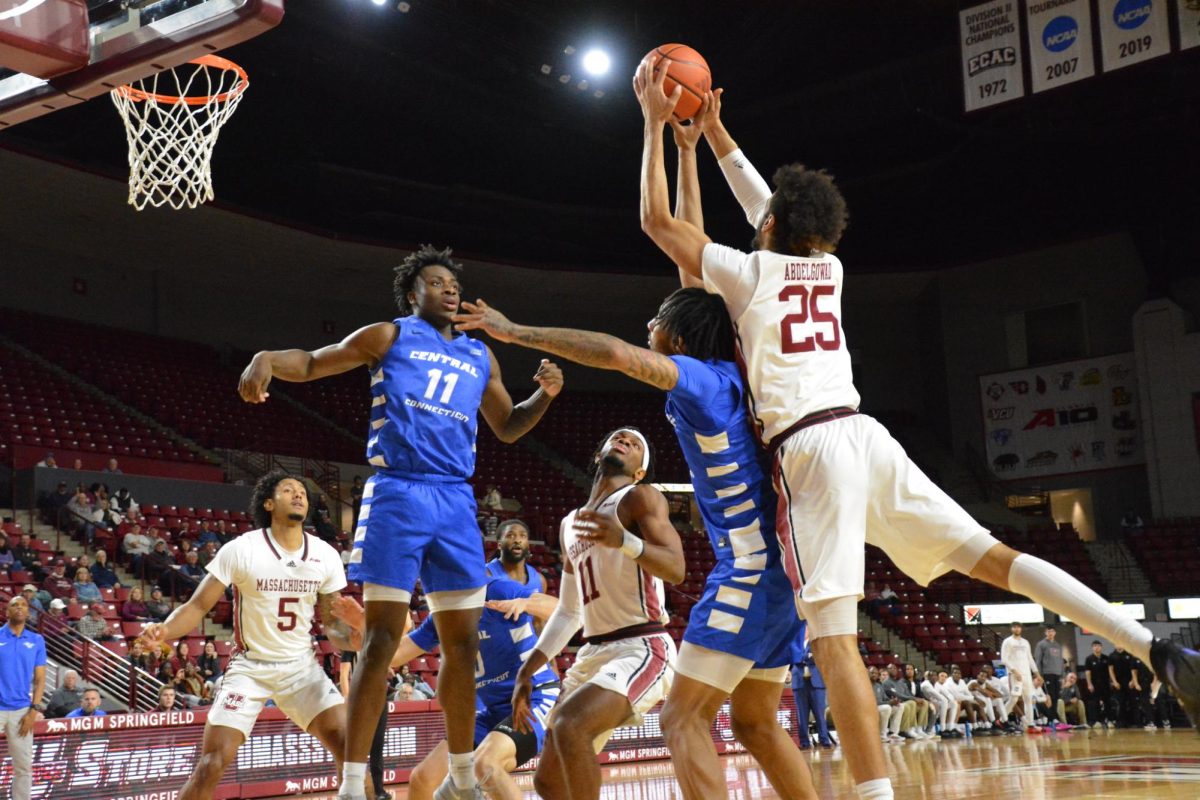Viera Wallace-Lorencova, a doctoral candidate in Communications at the University of Massachusetts, gave a lecture in the Campus Center yesterday as part of the ongoing Stonewall Center Lecture Series.
Wallace-Lorencova read from her doctoral research about the rise of LGBT activism in Slovakia. Though her work is not yet complete, she said yesterday that she was proud to be able to present some, “notes from the field” that she has collected in her native country.
She outlined a brief history of the country before describing the LGBT activist networks there. After Czechoslovakia split into Slovakia and the Czech Republic, Wallace-Lorencova commented, the Czech Republic was more liberal in politics than Slovakia. Though by the early nineties more and more gay rights were being approved in Slovakia’s legislature, according to Wallace-Lorencova, the homophobic culture of the conservative, largely Roman Catholic country has declined very little.
“Legislators were diminishing the punitive consequences of being homosexual,” she said. “But especially among rural, less-educated, older people in the country, the homophobia remained the same.”
It wasn’t until 1992, Wallace-Lorencova said – when the homosexual minimum age of consent was reduced legally from 18 to 15, to match the age of consent for heterosexuals – that activist networks felt more freedom to organize around LGBT issues.
As a journalist working for Slovakia Public Radio at the time, Wallace-Lorencova said she was, “lucky enough to be able to witness their work firsthand.”
Though her interview with the leader of Ganymede, the first Gay Non-government Organization (NGO) in Slovakia, was approved for airplay by the managers of the station “without express disproval,” Wallace-Lorencova said she still met with trouble elsewhere.
“Of course, it was not a theme I had to compete over with my colleagues,” she joked. “It was still considered taboo. The music director at our station made some very explicit homophobic comments to me and criticized me for doing the interview.”
She went on to explain that she also received criticism from individuals with strong religious beliefs.
“I also received a letter from a gentleman who thought I needed to be reminded that the Roman Catholic Church still regarded homosexuality as a sin,” she said.
Slowly but surely, Wallace-Lorencova said, LGBT activism has begun to spread around Slovakia, in the form of decentralized local networks. She explained that another obstacle to activism in Slovakia is that, since the collapse of socialism in that country, “everyone is wary of being pulled into any kind of organized activity as they often were during the Socialist period.”
Because of the decentralized nature of the current activism, Wallace-Lorencova said that she is, “careful not to talk about any existing LGBT community. It’s still just coming into existence.”
Rather, she has been watching its progress from overseas, and occasionally pays visits to do field research there while studying at UMass. Though she accepts that progress will be slow, she said, she also understands the urgent need for activism within Slovakia.
To illustrate this, Wallace-Lorencova quoted a Slovakian lesbian journal, Aspekt.
“On the one hand,” she read, “there is a need to encourage heterosexual tolerance. But on the other hand we hardly even know anything about ourselves. We lesbians are exiled to the worst kind of loneliness.”






